
Q. What were the smallest and largest black-powder charges used in sporting rifles?
A. Two drams or 55 grains in the .360 Black Powder Express up to 16 drams or 440 grains in the largest 4-bore rifle.
Q. How did the English gunsmiths determine the proper weight for a shotgun?
A. Proper shotgun weight was determined by 96 times the shot charge weight in ounces. A 12-bore proofed for a one-ounce charge time 96 = 96 ounces or six pounds gun weight. A 4-bore proofed for a 3½ ounce charge times 96 = 336 ounces or 21 pounds gun weight.
Q. Why do 8- and 4-bores vary so much in bore diameter?
A. While the chambers of the 8- and 4-bores were standardized, it was the wall thickness of the cartridge case that determined the diameter of the projectile and therefore the bore. A paper case had thicker walls than a brass case, equating to a smaller projectile diameter. Smaller bore rifles vary also, but not as much as the larger 8- and 4-bores.
Q. Where did the term “express rifle” originate?
A. James Purdey of London, in approximately 1856, named his new innovation an “express train rifle.” He used a larger than normal charge of black powder and lighter than normal projectile weight to obtain a higher than normal velocity. The word “train” was soon dropped, and the rifles were known as “express rifles.” When black powder gave way to smokeless or nitro powder, the two were differentiated by “black powder express” and “nitro express.”
This story is from the Spring 2020 edition of The Black Powder Cartridge News.
Start your 7-day Magzter GOLD free trial to access thousands of curated premium stories, and 9,000+ magazines and newspapers.
Already a subscriber ? Sign In
This story is from the Spring 2020 edition of The Black Powder Cartridge News.
Start your 7-day Magzter GOLD free trial to access thousands of curated premium stories, and 9,000+ magazines and newspapers.
Already a subscriber? Sign In
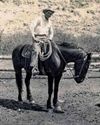
ON HUNTING AND SNIPING
Long-range target shooting here in the U.S. has become increasingly popular, at least since the first International Match with the Irish team in 1874.
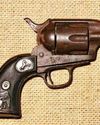
Death in the Desert
This Colt .45 “Peacemaker” was found out in the desert in historically one of the most dangerous places on Earth.
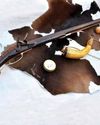
A COVID-19 Project
As far as the COVID-19 pandemic is concerned, I can’t find much good to say about it. One thing I can say, though; I had a lot of idle time on my hands. After perusing YouTube videos during this time of lockdown, I came across a company that makes rifle kits – Kibler’s Long Rifles.
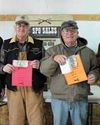
Smithmoor .22 Offhand Target Championship NSmithmoor Rangen Carpenter, Wyoming – February 20-21, 2021
The Smithmoor .22 Offhand Target Championship held February 20-21, was a great success! It was a two-day match with 50 record shots per day on the 100-yard German Ring Target from SPG Sales (blackpowderspg.com). Wyoming Schuetzen Union rules were used.
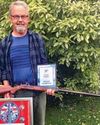
A .40 Caliber Long-Range Rifle
During a recent stay in New Zealand, we found ourselves in Rotorua, which is the stomping grounds of expert Kiwi rifleman, Laurie Kerr. Laurie has been a friend since we first met at Raton, New Mexico, a number of years ago and we have managed to stay in relatively good communication ever since.
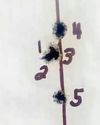
BE MORE THAN A Wannabe PART II
Since my first article was published in Issue No. 113 of The Black Powder Cartridge News, I have received several emails and groups from readers.
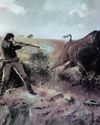
The Hide Hunting Exploits of HARRY “SAM” YOUNG
It’s difficult now to remember exactly where I first read or heard about Hard Knocks by Harry “Sam” Young. The book is an extremely entertaining read and in the Publisher’s Note, it specifically states, “The great lesson of this book is that “truth is stranger than fiction.”
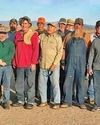
Match Results
World’s Largest Black Powder Target Rifle Match Phoenix, Arizona – March 1-10, 2021 BEN AVERY SHOOTING FACILITY

The Wyoming Schuetzen Union's “Center Shot”
John Bodine, “Old Reliable”

Who Was Albert F. Mitchell?
When somebody hears the words “Sharps rifle,” the first things that probably come to mind are the great buffalo hunts, the “Wild and Wooly West” and tales of long-range shots, Indian attacks, and hunters freezing in blizzards.